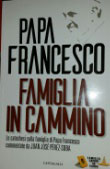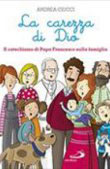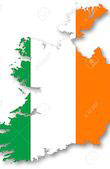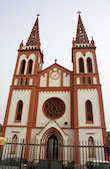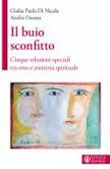On 9 March 2016. News from France, Canada, West Africa, Burkina Faso and Pakistan about pregnancy, abortion, euthanasia, forced marriage and birth registration.
• FRANCE / PREGNANCY
Read the beautiful presentation, in the French daily "Le Figaro", of an association that helps pregnant women in difficulty: founded in 2010 on the principle of cohabitation in solidarity, the homes Marthe et Mariereceive women whose pregnancies are the cause of emotional and social ruptures, and accompany them until the first months after birth.
• FRANCE / IVG
With the publication, on 8 March, of a specific
ordinance, starting on 1 April 2016 the tests related to the voluntary termination of pregnancy (medical examinations, biological examinations, and any echographies) will be reimbursed at 100% in France. The IVG is already reimbursed since 2013. Thus, under the impulse of the Health Minister Marisol Touraine, the entire "IVG-path" will be fully reimbursed, as announced on 15 January. In a
statement, the pro-life association Alliance VITA, which expresses the thought of many Catholics, denounced this measure, which leads to "a disturbing discrimination between the IVG on the one hand, and the continuation of the pregnancy on the other hand, given that, for example, only 70% of the first two echographies before the fifth month of pregnancy is reimbursed." Alliance VITA also reiterates "the urgent need for true anti-abortion policies."
• CANADA / EUTHANASIA
A few days after Canada's Supreme Court approved "Medical Aid in Dying," on February 6th, Jean Vannier, founder of
L'Arche, an association that welcomes people with mental disabilities in common living spaces, published a message stating that "nothing is more important for a society than its attitude towards life and death." "With the removal of the legal ban on medical aid to die, under certain exceptional circumstances—reiterates Jean Vannier, himself a Canadian—the country is entering into a new medical and ethical reality." The founder of L’Arche calls for better protection and greater commitment to "care for one another in the moments of our lives when we are the weakest."
• WEST AFRICA / BISHOPS
The West African Regional Episcopal Conference met for a Plenary Assembly in Accra, Ghana, from 22 to 28 February. At the end of this meeting, the Bishops issued a
pastoral message. A large part of this text is devoted to the family. Among other things, the Bishops pointed out the need to "specifically preserve and promote the rights of society's most vulnerable members, such as unborn children, the elderly and the sick." The West African Bishops also emphasize that "marriage is the gift from God that unites a man and a woman, neither more nor less" and that "all human life is sacred and should be accompanied, cared for, protected and respected from conception until its natural end." In this regard, they say that they are "ready to defend, in the public space of their respective countries, the culture of life against the culture of death, which is often presented as a means of development."
• BURKINA FASO / FORCED MARRIAGES
Burkina Faso's Minister of Justice, Human Rights and Civic Promotion has reaffirmed the government's commitment to prevent early and / or forced marriages. The Minister, Mr. René Bagoro, intends to set the legal age of marriage for girls at 18. Moreover, forced marriage will be clearly defined by the Criminal Code of Burkina Faso.
• MADAGASCAR / BIRTH REGISTRATION
The problem of the lack of certificates of civil status for many children concerns many African countries. On 2 March 2016, the Malagasy newspaper "Lakroa", published by the Jesuits in Madagascar, took this matter up again, explaining that the declaration of birth is hampered by two problems. The first is cultural: a child is a gift of Zanahary (God), and therefore it is not necessary to declare it. The other problem is legal: 12 days is not enough to allow people to go to the city hall when it is too far away.
• PAKISTAN / MARRIAGE
From now on, in the province of Sindh, in the south of Pakistan, the Hindus will declare their religious marriage to the civil authorities. This law potentially affects three million Pakistani Hindus, the majority of whom live in and around Karachi, Sindh's capital. This text fills a legal vacuum that has existed since the creation of the state of Pakistan, in 1947. Some Hindu legislators are hoping that this new law will limit the number of conversions and the forced marriages suffered by increasing numbers of Hindu women in Pakistan, a predominantly Muslim country, says
Eglises d'Asie, the information service of the Foreign Missions of Paris.



